Yegna, Ethiopia's 'Spice Girls', lose UK funding
- Published
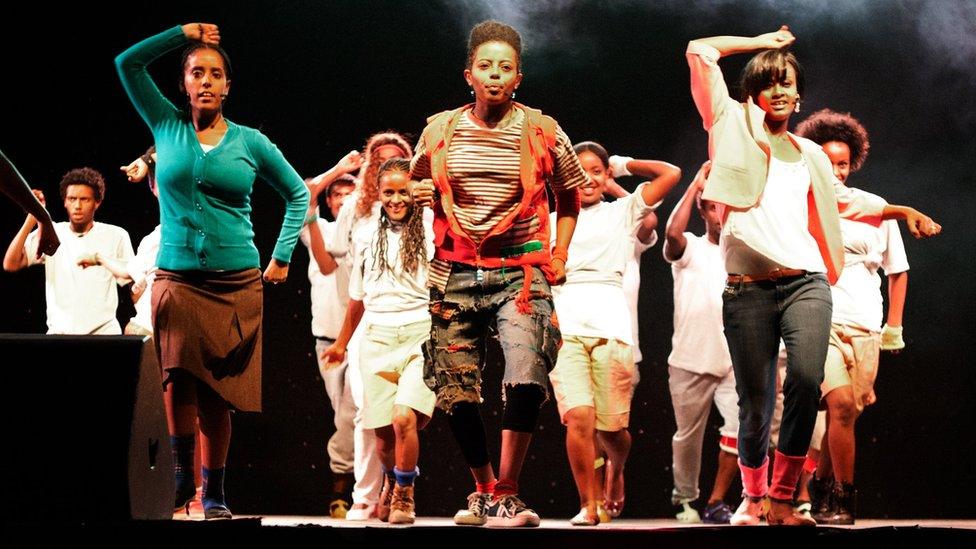
Ethiopia's Yegna sing about female empowerment in a country where violence against women is common
The government has axed plans to fund a five-member Ethiopian girl band, saying there are "more effective ways" to invest UK aid.
International Development Secretary Priti Patel reviewed the funding after reports that pop group Yegna had received millions from UK taxpayers.
The government planned to give Girl Effect, the organisation which created Yegna, £11.8m between 2015 and 2018.
Girl Effect said its aims had been "wilfully misrepresented" in the media.
The organisation was created by the Nike Foundation and given funding by the UK's Department for International Development (DfID) to help promote women's rights in developing countries. It used some of its funding to create and promote Yegna.
The band, dubbed "Ethiopia's Spice Girls", has been the subject of a long-running campaign by the Daily Mail, which claims grants to the group were a waste of money.
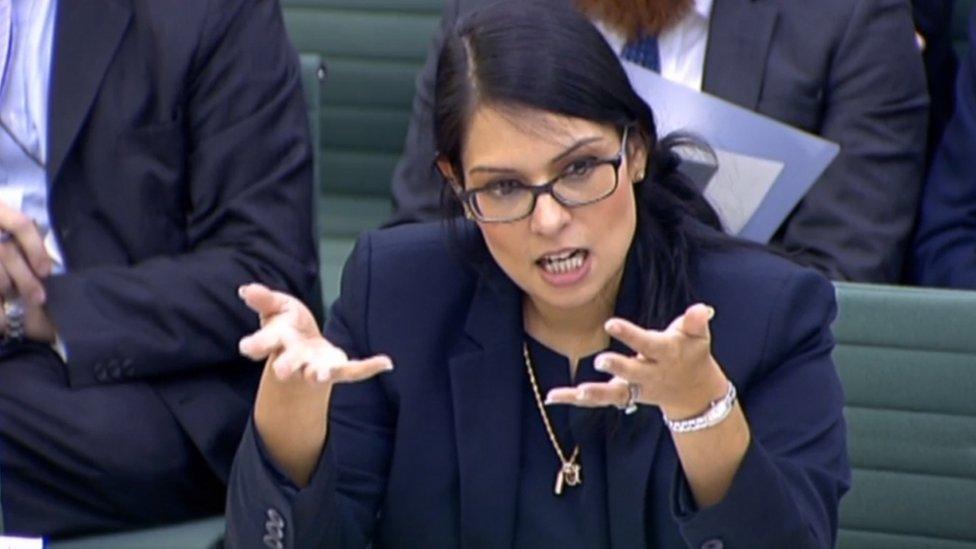
International Development Secretary Priti Patel announced a review of the girl band's funding last month
Girl Effect founded the five-strong girl band in 2013 to tackle issues including domestic violence and forced marriage through songs and online videos.
The DfID said its partnership with Girl Effect has ended following the review, but insisted that "empowering women and girls around the world remains a priority".
It said the decision had not been influenced by press coverage of Yegna.
"We judge there are more effective ways to invest UK aid," a spokeswoman said, adding that the government will "deliver even better results for the world's poorest and value for taxpayers' money".
They perform a weekly drama and talk show on Ethiopian radio, as well as running a YouTube channel. They released their first song, Abet, meaning "We are here" in Ethiopia's official language Amharic, four years ago.
Girl Effect said Yegna aims to "change the culture of Ethiopia in a good way, to explain the problems in the society".

Who are Yegna?
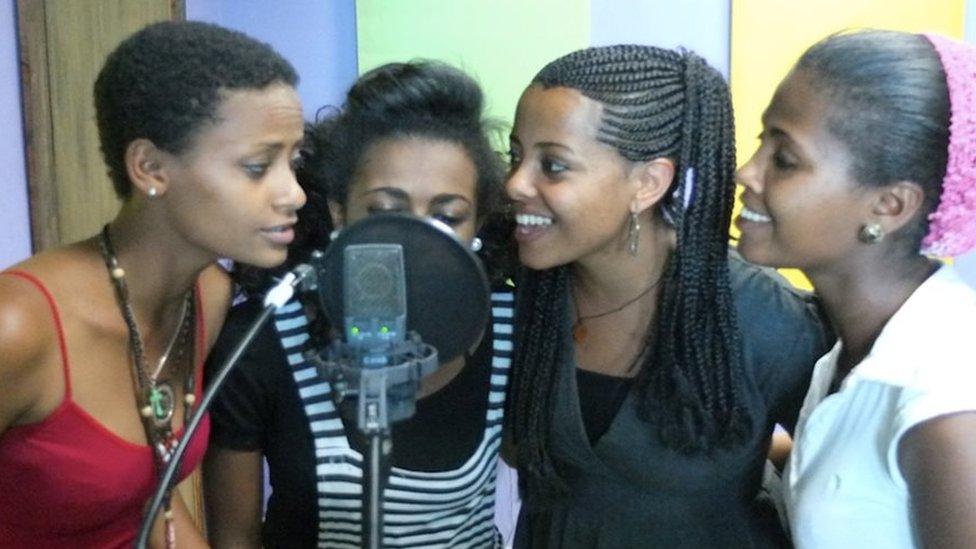
Its members are all twenty-something Ethiopians: Rahel Getu, 22, Zebiba Girma, 22, Eyerusalem Kelemework, 27, Lemlem Haile Michael, 26 and Teref Kassahun, 26
They adopt stage names: Lemlem, Emuye, Sara, Mimi and Melat
The pop group was set up in 2013 to "empower young women" including challenging young marriage and gender-based violence
Yegna is pronounced "Yen-ya", which means "Ours" in Amharic
Their catchphrase is: "We are here. We will not be silenced"
Girl Effect said Yegna reach 8.5 million people in Ethiopia through its radio drama, music and talk shows
Source: Girl Effect

Shadow International Development Secretary Kate Osamor said it was "really unfortunate" the project "was being rubbished".
Humanitarian aid was "not just about food parcels", she said.
But Conservative MP Nigel Evans said the decision was about stopping "vanity projects" in favour of causes such as children's education and life-saving vaccinations.
"It is a victory for common sense", he told BBC News. "As well intentioned as it may have been, the fact is it does not measure up."
Girl Effect said the UK had broken "new ground" by investing in Yegna but that "new ideas are often resisted and sometimes wilfully misrepresented".
"[The department] has consistently recognised Yegna's impact," Girl Effect said. "All too often we treat the symptoms of poverty and overlook the cause."
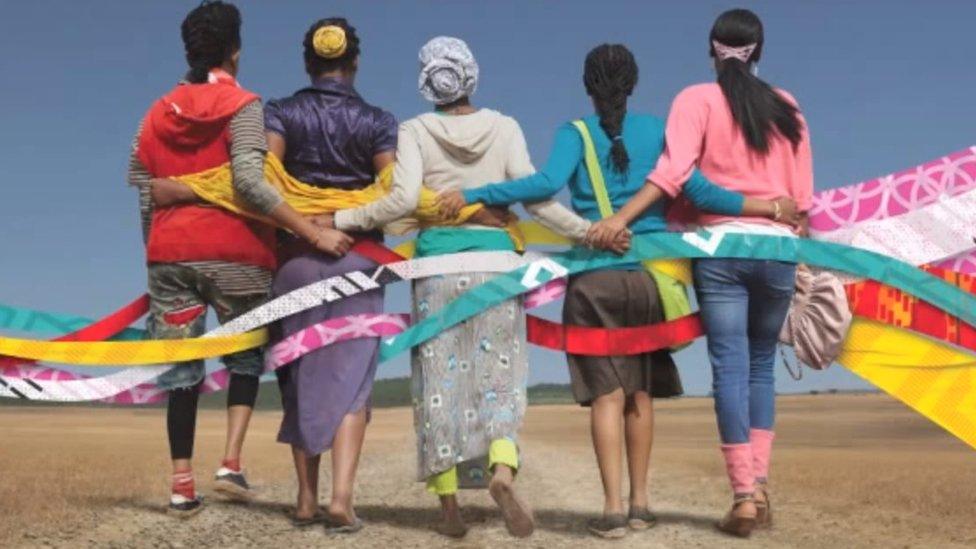
Britain is a significant contributor to Ethiopia, which is the biggest recipient of UK foreign aid behind Pakistan, at £334.1m.
But the government is under pressure to prove that the more than £12bn it sends overseas each year is being well spent, particularly as domestic budgets are being squeezed.
The Daily Mail backed the UK's decision to end ties with Yegna on its front page on Saturday, with the headline: "Aid: Now they're listening". It said British taxpayers would no longer fund "Ethiopia's version of the Spice Girls".
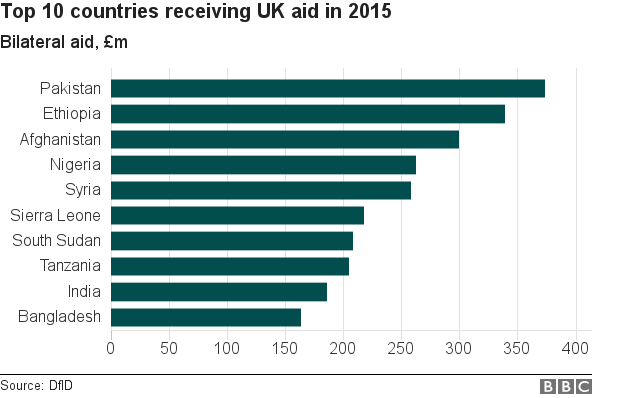
Nearly half of Ethiopian women have experienced physical violence from their partner, according to the UN. Some 74% of women in the country have also undergone female genital mutilation, Unicef says.
Ethiopia is partway through a a six-month state of emergency in the face of a wave of unprecedented anti-government protests in October.
- Published19 December 2016
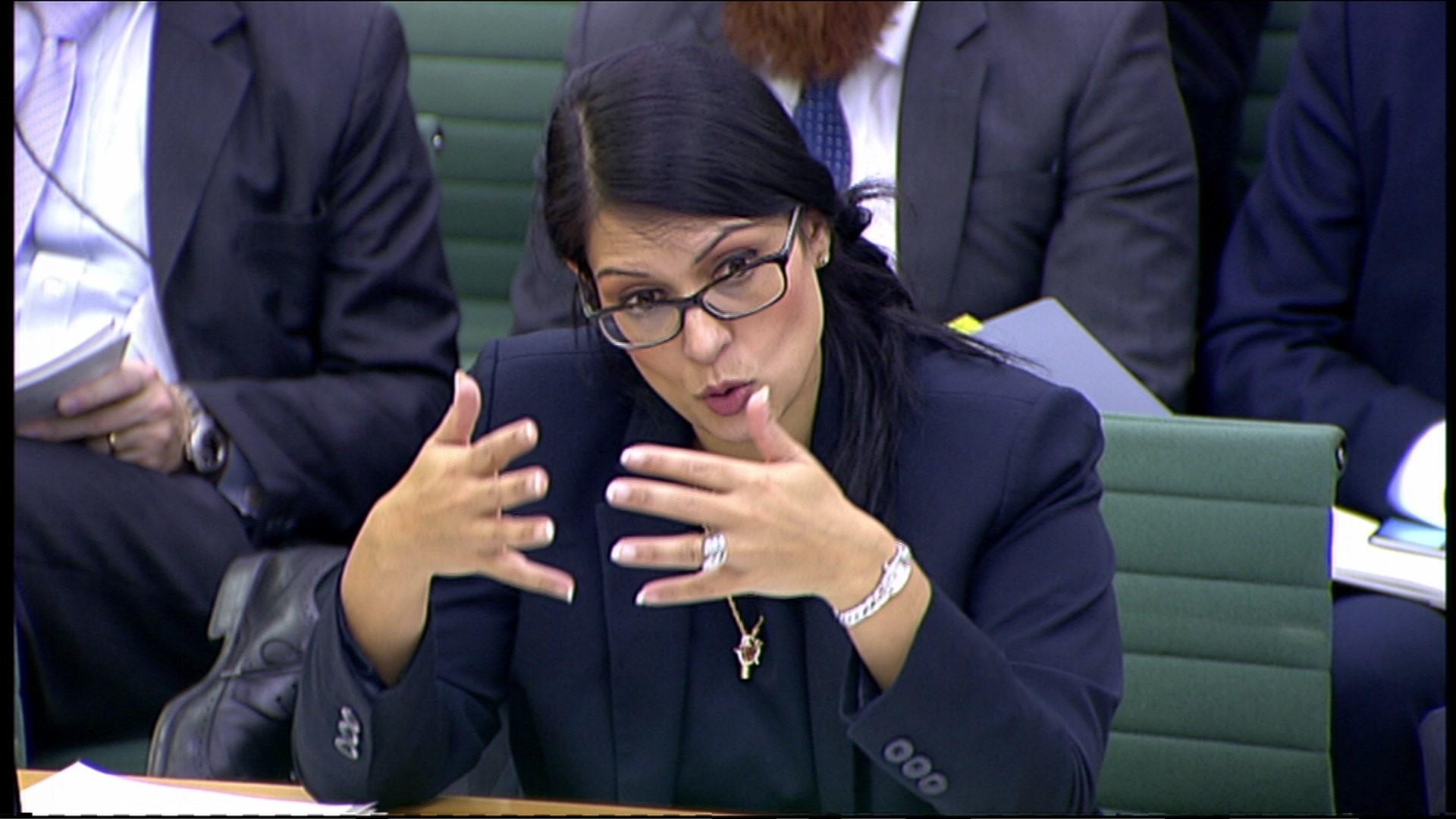
- Published21 November 2016
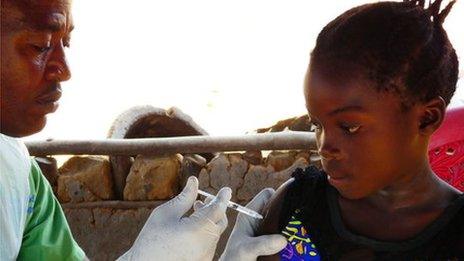
- Published5 January 2016